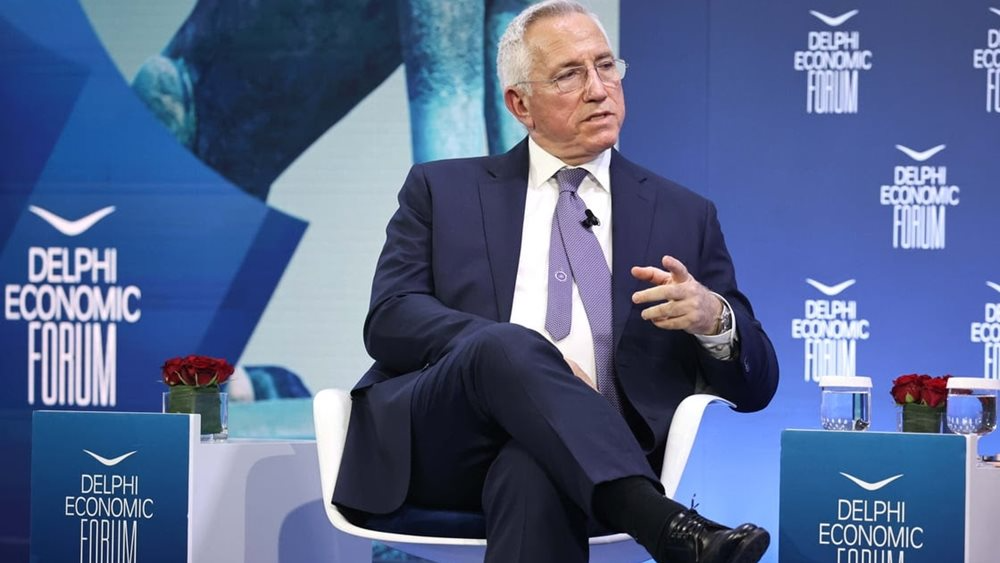
Michael Tsamaz, Chairman and CEO of OTE Group, spoke about the challenges he has faced in his long career in the management of OTE and the recipe for a successful tenure, in the context of the 9th Delphi Economic Forum.
He said that when he took over the management of OTE in 2010, "we had to deal with multiple problems in various activities, plus the fact that the financial crisis was creating a huge funding problem for OTE".
"We had to create a strategic plan on the basis of which the consolidation would take place. We shared these visions with the employees and believed in them. We won the small battles in the beginning, and then these small victories brought us bigger ones," he further commented. Also, according to him, the result of the consolidation and investments over the years was that once the COVID crisis started, the infrastructure brought in increased traffic, and competitors relied on OTE's networks. He added that at the beginning of the COVID crisis, "in our company, 13,000 people went online within 72 hours."
Asked by ANT1 journalist Maria Sarafoglou, who moderated the discussion about the biggest challenge of his tenure at OTE, Tsamaz said that "the most difficult moment was at the beginning of my tenure, because of the economic crisis. I took over in November, 2010."
Describing the circumstances at that time, Mr. Tsamaz explained that "the Regulatory Authority imposed on us that we were 100% more expensive than our competitors. The big issue was also pricing policy, we had to find ways to reduce operating costs and we had to reduce staff from 20,000 to 10,000. Payroll costs were €1 billion, and we had to get it down to under 500,000."
As he further underlined, "there we designed an approach, we discussed it with employee representatives, there was opposition, but in the end we convinced them that it was the only way out for consolidation. At the same time, we agreed with the shareholders for a period of four years not to pay dividends. We introduced voluntary redundancy schemes and pay cuts for employees, which were pioneering at the time - and then others, banks, etc.—followed.
He also added, "The company in five years reduced by 5,000 people, but we hired another 3,000 employees. The combination of leaving the older employees and bringing in younger employees helped us change the culture of the company and attract customers."
Referring to his long tenure at OTE, Tsamaz said that prior to 2004, the average length of time a director stayed at OTE was less than two years. "When you take over a company and you have, say, a ten-year plan, you don't even have time to get a scent, to put it in layman's terms, and you are replaced. With the major shareholders, when I took over, as long as I was going to achieve the targets, there was no question of changing the management," he said.
As for the "sport of technology," he explained that it is not expensive, "when you get on the train. Artificial intelligence is now entering every facet of our daily lives and will change everything, from the way we are educated to many disciplines," he said.
Asked about his retirement this summer, Tsamaz said that "for every manager, athlete, artist, maybe even journalist, they say you have to know when the timing is right to retire. I think for me, now is the ideal time. In terms of financial indicators, we are one of the best telecom companies in Europe. The company is currently tidy, it's at the peak of its performance and returns, so for me it's very important that I pass the baton to my successor, having now solved many of the problems that existed when I took over."
Referring to the recipe for success, he said that "it is not one-dimensional, it is a combination of many things. Vision, goals, perseverance, not getting frustrated at failures, just as you learn from failures, honesty, integrity, empathy, building trust, making your word a contract, projecting the contribution of your colleagues, solving problems".
He concluded: "I will tell you in one sentence: you have to put yourself in the other person's shoes. It is important to treat your partners as you would like to be treated."






